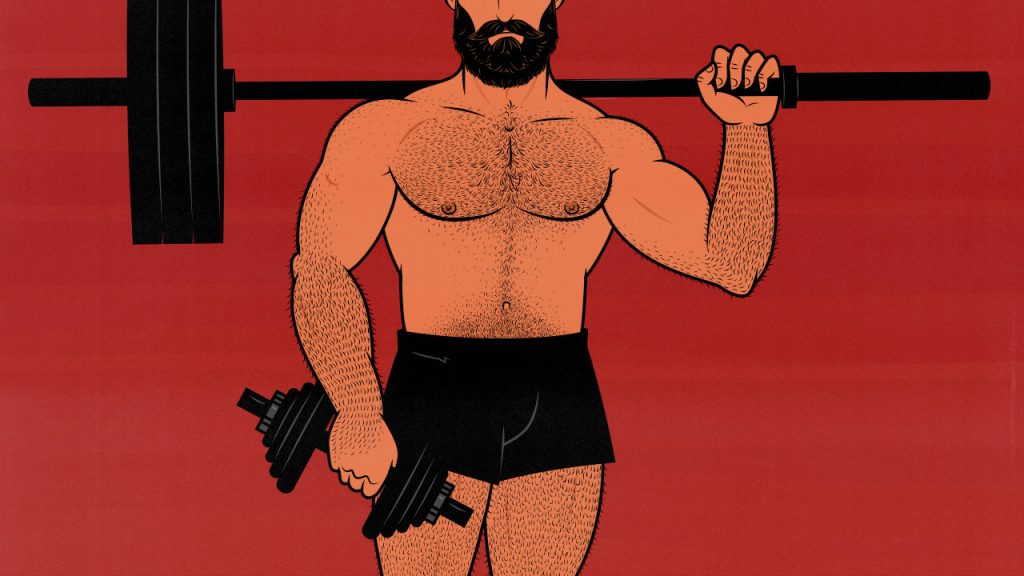
How to do the Farmer Carry: Benefits & Workout
The farmer carry, also known as the farmer’s walk, involves going on a short walk while carrying heavy weights. It’s popular with strongmen and athletes but less so with bodybuilders, which is a shame. Bodybuilders could benefit from it.
Marco learned the farmer carry while studying under Eric Cressey, the head strength coach for the New York Yankees. He went on to use it with his own clients, ranging from everyday people to college, professional, and Olympic athletes.
When Marco and I started making muscle-building programs together, he convinced me that farmer carries belong there, too. Here’s why.
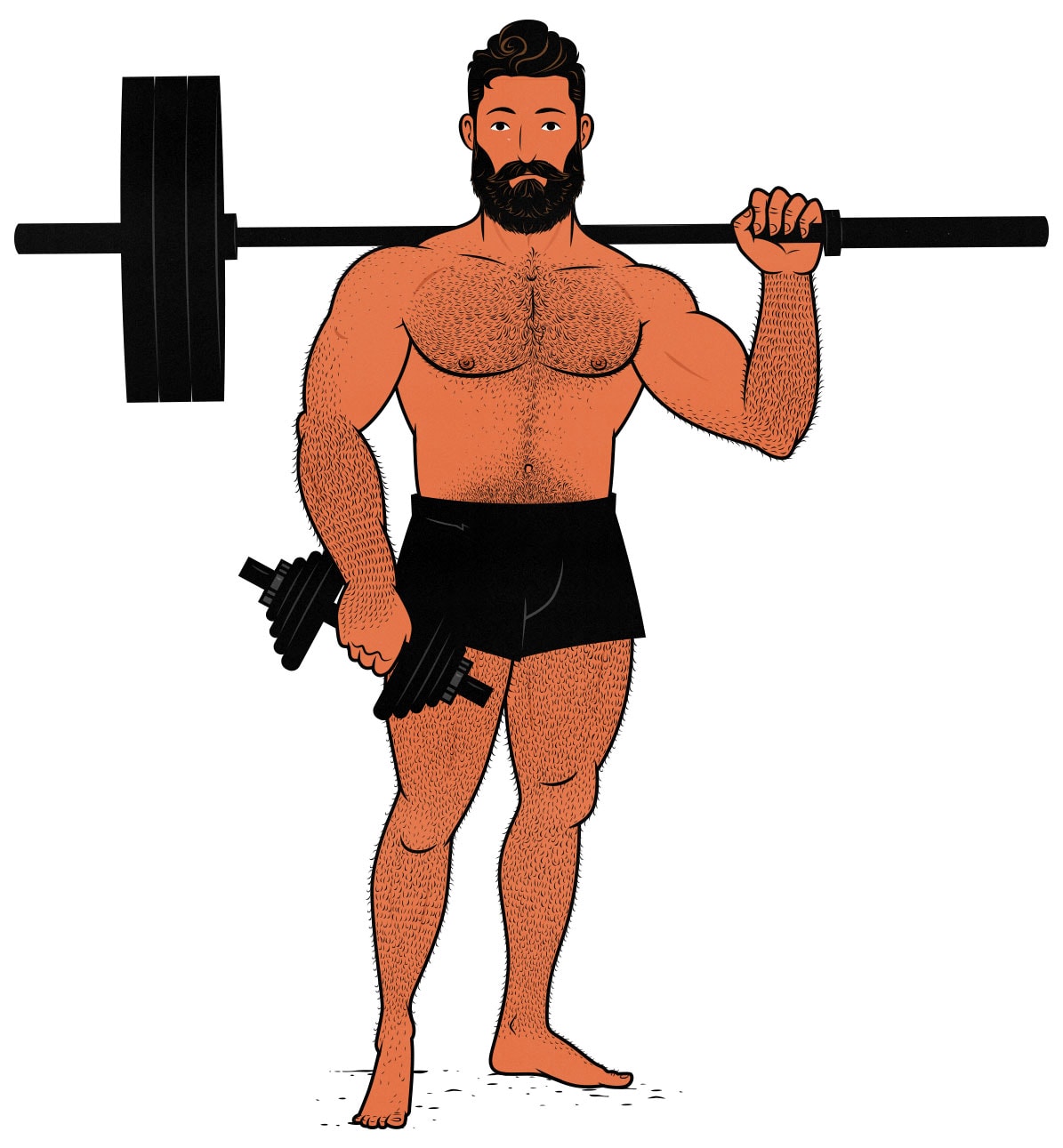
The Benefits of the Farmer Carry
The main benefit of the farmer carry is that it strengthens your postural muscles. When you carry heavy weights, they pull you down, trying to collapse your posture. When you resist that pressure, you stimulate muscle growth, and that extra muscle helps you stand taller, straighter, and sturdier.
Farmer carries also make you much better at carrying things. It’s an incredibly useful type of strength to have. You’ll be able to carry heavier things in your hands for further.
Farmer carries also make you look bigger, stronger, and better. Even if all you care about is bodybuilding, they’re similarly good to shrugs for bulking up your traps, and you get some extra postural and core benefits added in.
Muscles Worked
Farmer carries work the muscles in your upper back, shoulder girdle, core, and forearms. They also stimulate the muscles in your arms and legs, but probably not enough to stimulate much muscle growth, especially if you’re doing other exercises that train those muscles more directly.
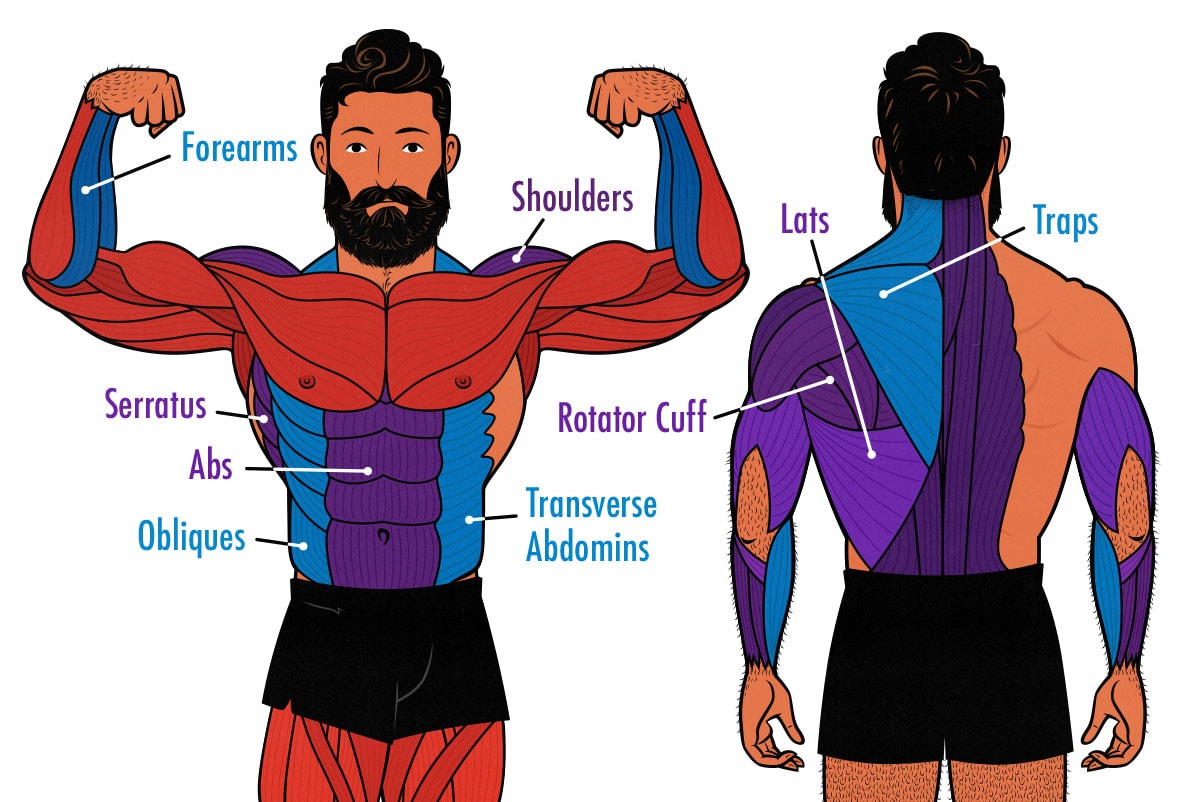
You’ll feel the exercise in your grip, upper traps, and probably some of your core muscles, such as your obliques. It’s hard to say what your limiting factor will be. If you’re using a farmer walk handle or trap bar, it might be your upper back. If you’re using dumbbells, it might be your grip. If you want to de-emphasize your grip, you can use lifting straps.
Different variations of the farmer carry emphasize different muscles, too. One-arm suitcase carries work your obliques harder, waiter carries bring in your shoulders, and front-racked carries challenge your spinal erectors and serratus.
What About Fatigue?
One common criticism of the farmer’s carry is that it’s disproportionately fatiguing. Why would you load your spine and postural muscles up with so much weight when you could just as easily bulk up your traps with shrugs? Or so the thinking goes.
That argument misunderstands the purpose of the farmer carry. We want to strengthen our spines and postural muscles. We aren’t just trying to bulk up our traps. Gaining more muscle and strength and developing a stronger posture is more than worth the extra fatigue.
The fatigue is often exaggerated, too. If you’re a strongman with a thousand pounds yoked across your shoulders, you can generate a tremendous amount of fatigue. But if you’re a regular person carrying dumbbells weighing some 40–120 pounds, it isn’t anything to worry about.
If you want to learn more about fatigue, we have an article on the stimulus-to-fatigue ratio.
How to Do the Farmer Carry Exercise
There are a few different variations of the loaded carry. The classic “farmer carry” variation has you holding the weights at your sides. It’s the simplest variation, and it’s a great place to start.
Farmer Carry Tutorial
There are a few different ways to do farmer carries. Strongmen will often use special farmer walk handles that make the weight easier to hold. You can get that same effect by using a trap bar. But most people do farmer carries with dumbbells, and that’s perfectly fine.
Here’s a tutorial video of Marco teaching the exercise:
Suitcase Carry Tutorial
The one-arm “suitcase” carry makes the load asymmetrical, forcing your obliques to fight to keep your body upright.
Racked Carry Tutorial
Racked carries shift more emphasis to your shoulder girdle, serratus, and upper back. They’re great for improving shoulder mobility and stability.
Farmer Carry Workout
Farmer carries are done for distance or steps, not reps. You could walk to the other end of the gym and back, adding weight whenever you’re able to get it all the way back without needing to rest. You could also count out your steps, trying to walk a few more steps each workout.
| Week | Sets | Steps |
|---|---|---|
| Week 1 | 2 | 40 |
| Week 2 | 3 | 40 |
| Week 3 | 3 | 40 |
| Week 4 | 4 | 40 |
| Week 5 | 4 | 40 |
Start with just a couple of sets. Your muscles are sensitive to new exercises. They’ll grow easily, and they’ll also get damaged easily, so less is more. Then, as your muscles grow tougher, you can gradually increase your training volume, adding extra sets.
I recommend doing your farmer carries after you’ve finished your compound lifts. You don’t want to tire out your grip and postural muscles before doing your squats, deadlifts, overhead presses, and rows.
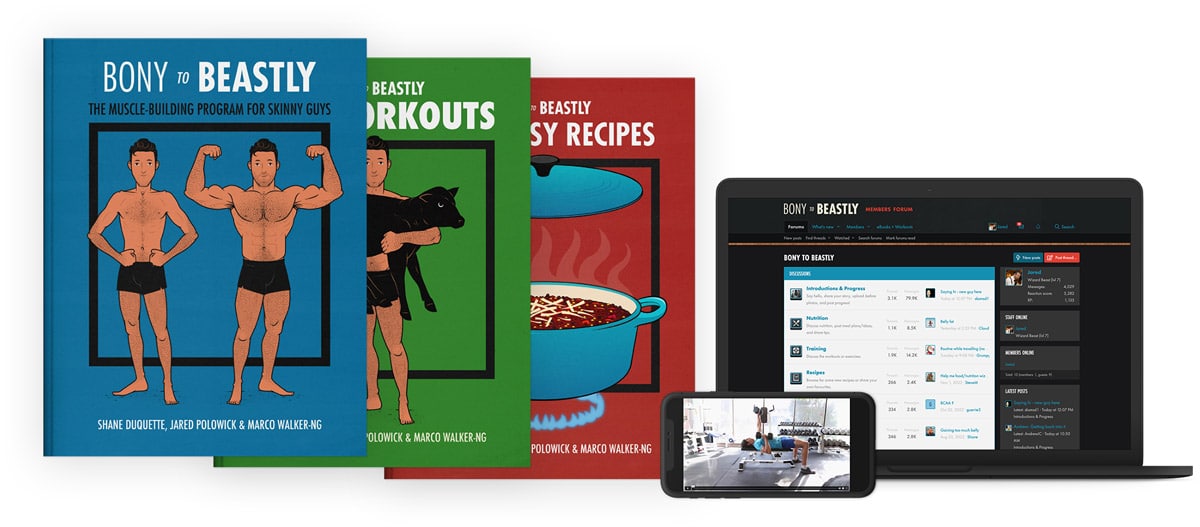
If you want a hearty bulking program that includes lifts like the farmer carry, check out our Bony to Beastly Program (for men) or Bony to Bombshell Program (for women). They’re full muscle-building courses. We’ll teach you every exercise, give you a full workout routine, show you how to eat a nutritious muscle-building diet, and arm you with a book full of recipes you can use.
We’ll also give you personal support as you go through the program, helping you track your progress and make adjustments. We have an unconditional refund policy.


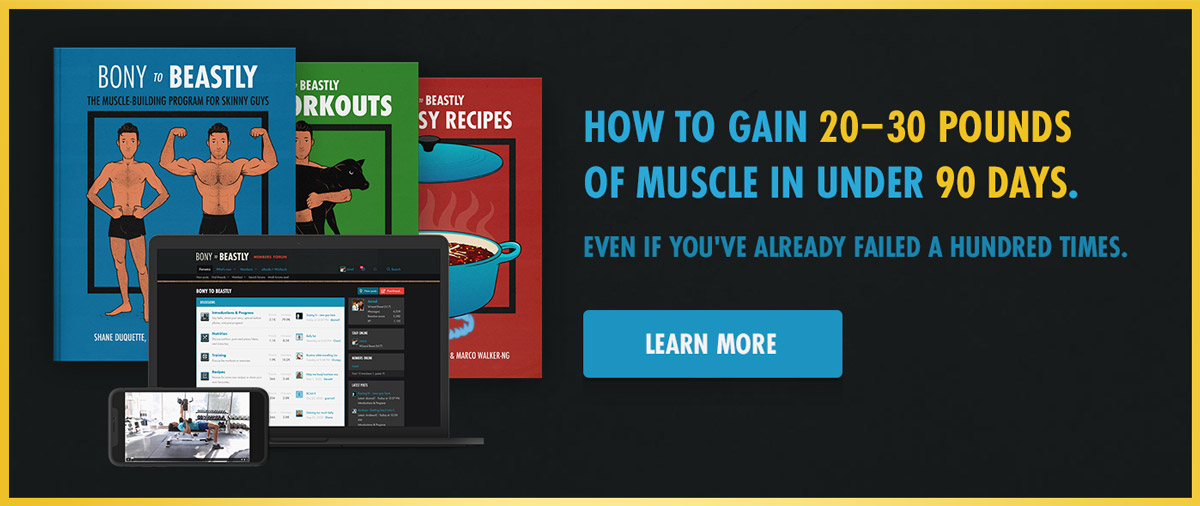
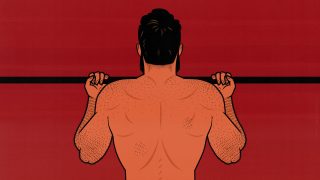
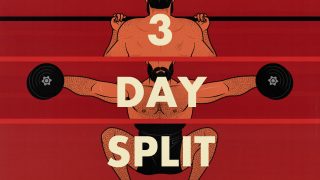
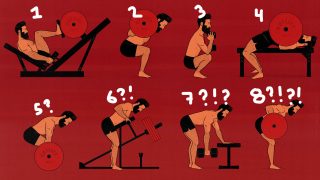
Hi Shane,
I am training in a homegym with limited space. Would static holds bring the same benefits? Of cource less for lower body.
Hey, Sebastian. Static holds can be good, but if you want more of the benefits of farmer carries, you could march in place. If you have a bit more space than that, you could pace around or walk backwards and forwards.
Thank you Shane,
March in place sounds crazy with a heavy dumbbell in each hand. Maybe better that I have no spectators in my home gym.